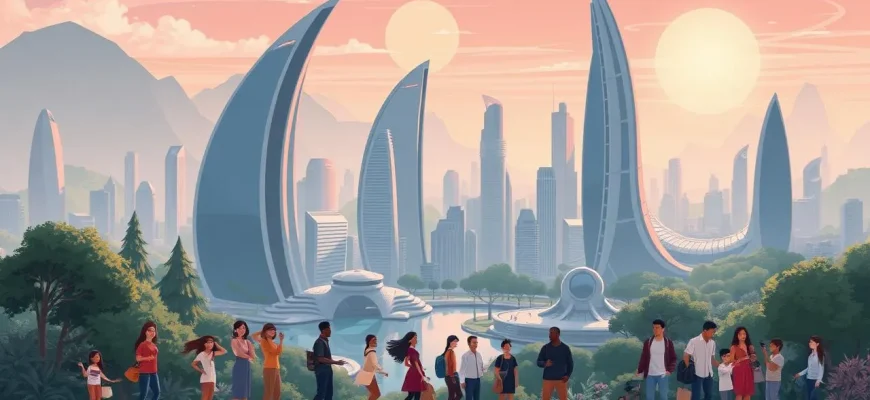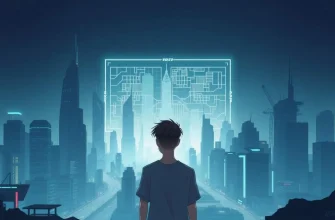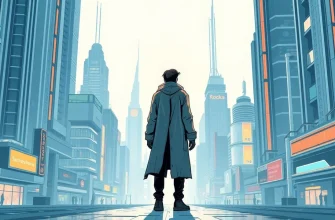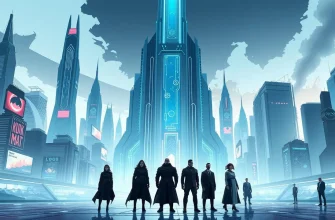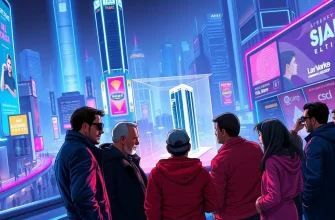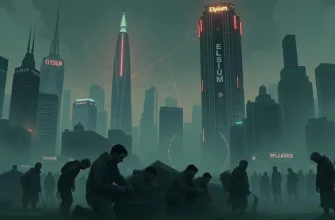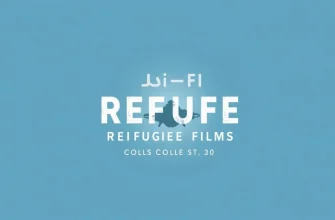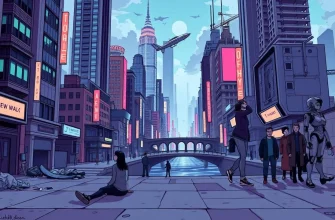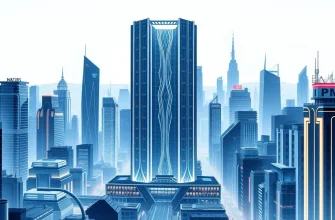Utopian science fiction films offer a glimpse into worlds where humanity has achieved perfection or near-perfection in various aspects of life. These films not only entertain but also provoke thought about what could be, exploring themes of technology, society, and human nature. Here's a list of 10 films that delve into utopian visions, each with its unique take on what an ideal world might look like.

Logan's Run (1976)
Description: In a utopian society where people are euthanized at 30 to control population, a man decides to escape this fate, leading to a journey that questions the nature of freedom and the value of life.
Fact: The film was nominated for two Academy Awards for its visual effects and art direction. The idea of a "carousel" where people are "renewed" was a chilling concept of utopian control.
 Watch Now
Watch Now 
Gattaca (1997)
Description: In a society where genetic engineering allows for the selection of traits, a naturally conceived man assumes the identity of a genetically superior one to pursue his dream of space travel. It's a utopia for the genetically elite but a dystopia for others.
Fact: The film's title is based on the four nitrogenous bases of DNA: guanine, adenine, thymine, and cytosine. The production design was inspired by the architecture of Frank Lloyd Wright.
 Watch Now
Watch Now 
The Truman Show (1998)
Description: Truman Burbank lives in a perfect, idyllic world, but it's all a TV show. This film explores the idea of a utopian life that's actually a controlled environment, raising questions about privacy, reality, and the pursuit of an authentic life.
Fact: The film was inspired by a 1989 French short film called "The Big Brother." Jim Carrey was paid $12 million for his role, which was a significant amount at the time.
 Watch Now
Watch Now 
The Matrix (1999)
Description: While not entirely utopian, the Matrix itself represents a utopian virtual reality for those plugged into it, offering an escape from the harsh realities of the real world. The film explores the nature of reality and freedom.
Fact: The Wachowskis wrote the script in 1996, but it took three years to get the film made due to its complex visual effects. The film's "bullet time" effect became iconic.
 Watch Now
Watch Now 
Equilibrium (2002)
Description: In a future where emotions are outlawed to prevent war, a law enforcement officer begins to question the system after missing his dose of emotion-suppressing drugs. This film explores the idea of a utopia where peace is maintained at the cost of individuality.
Fact: The film was heavily influenced by classics like "1984" and "Fahrenheit
 Watch Now
Watch Now 
The Island (2005)
Description: Set in a seemingly utopian facility where inhabitants are told they are survivors of a global contamination, the truth is far more sinister. This film delves into themes of freedom, identity, and the ethics of cloning.
Fact: The film's concept was inspired by the 1979 film "Parts: The Clonus Horror." Scarlett Johansson and Ewan McGregor performed many of their own stunts.
 Watch Now
Watch Now 
The Giver (2014)
Description: In a seemingly perfect community without war, pain, or suffering, a young man is chosen to learn from an elder about the true pain and pleasure of the "real" world. This film examines the price of utopia.
Fact: The film is based on Lois Lowry's 1993 novel of the same name. Meryl Streep and Jeff Bridges were both involved in the project for over 15 years.
 Watch Now
Watch Now 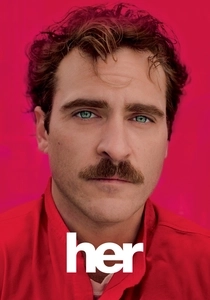
Her (2013)
Description: A lonely writer develops an unlikely relationship with an operating system designed to meet his every need. This film explores a utopian future where technology can provide companionship, but at what emotional cost?
Fact: Spike Jonze wrote the screenplay with Sofia Coppola in mind, but they later divorced. The film's music was composed by Arcade Fire.
 Watch Now
Watch Now 
Tomorrowland (2015)
Description: A disillusioned genius inventor and a curious, optimistic teen embark on a mission to uncover the secrets of a mysterious place called Tomorrowland, a utopian city where the world's brightest minds have gathered to solve the world's problems.
Fact: The film was inspired by the Disney theme park attraction of the same name. The director, Brad Bird, had been trying to make this film for over 20 years.
 Watch Now
Watch Now 
WALL-E (2008)
Description: In a future where Earth is abandoned, a small waste-collecting robot named WALL-E discovers a new purpose in life. The film shows a utopian space society where humans live in luxury, but at the cost of their physical and mental health.
Fact: WALL-E has no dialogue for the first 39 minutes of the film. The film's environmental message was a key theme, reflecting Pixar's commitment to storytelling with depth.
 30 Days Free
30 Days Free 
